Search
Remove Ads
Advertisement
Summary 
Loading AI-generated summary based on World History Encyclopedia articles ...
Search Results
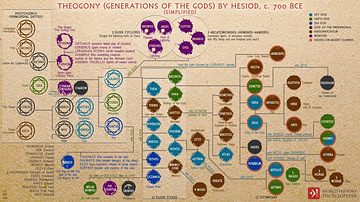
Definition
Hesiod
Hesiod (c. 700 BCE) in conjunction with Homer, is one of those almost legendary early Greek Epic poets. His works are not of comparable length to Homer's. Hesiod's poems are not epic because of their length, but because of their language...
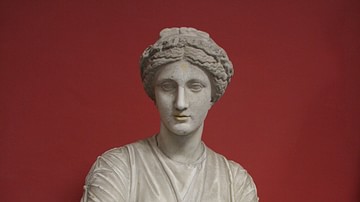
Article
Hesiod on the Birth of the Gods
The Greek poet Hesiod (c. 700 BCE) is most famous for his works Theogony and Works and Days. In this passage from Theogony, Hesiod relates the birth of the gods from cosmic Chaos and follows the lineage through the great Zeus, King of the...
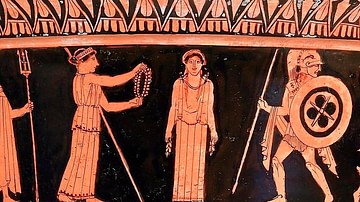
Definition
Works and Days
Works and Days is an epic poem written in dactylic hexameter, credited to the 8th-century BCE Greek poet Hesiod. Hesiod is generally remembered for two epic works, Theogony and Works and Days but, like his contemporary Homer, he was part...
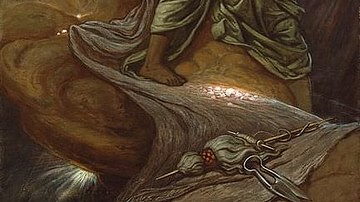
Definition
Theogony
The Theogony is an 8th-century BCE didactic and instructional poem, credited to the Greek poet Hesiod. The Theogony was, at first, not actually written down, rather, it was part of a rich oral tradition which only achieved written form decades...
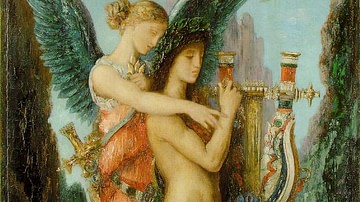
Image
Hesiod and the Muse
Hesiod and the Muse,1891,oil on canvas by Gustave Moreau

Image
Theogony (Generations of the Gods) by Hesiod, c. 700 BCE
An infographic illustrating Hesiod's Theogony (literally meaning "Birth of the Gods") - the earliest known and the only complete account of the origins of the universe and the gods according to ancient Greek mythology and tradition. Traditionally...
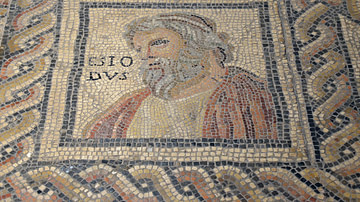
Image
Portrait of Hesiod
Portrait of the Greek poet Hesiod (ESIODVS) on the Monnus mosaic from Augusta Treverorum (Trier), end of the 3rd century CE. It is the only known authenticated portrait of Hesiod. (Rheinisches Landesmuseum Trier, Germany)
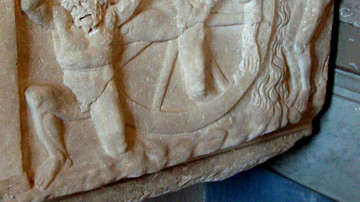
Definition
Tartarus
In Greek mythology, Tartarus was the lowest point of the universe, below the underworld but separate from it. Tartarus is best known from Hesiod's Theogony as one of the first beings to come into existence in the universe and also as the...
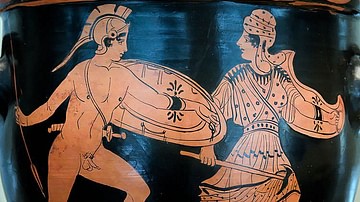
Article
A Visual Who's Who of Greek Mythology
Achilles The hero of the Trojan War, leader of the Myrmidons, slayer of Hector and Greece's greatest warrior, who sadly came unstuck when Paris sent a flying arrow guided by Apollo, which caught him in his only weak spot, his heel. Adonis...
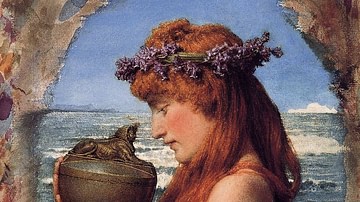
Definition
Pandora
Pandora is a figure from Greek mythology who was not only the first woman, but —as an instrument of the wrath of Zeus— was held responsible for releasing the ills of humanity into the world. Pandora was also an unrelated earth goddess in...